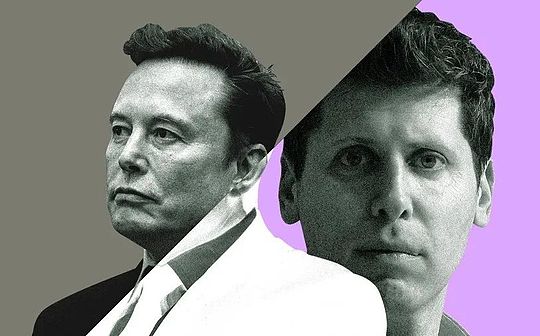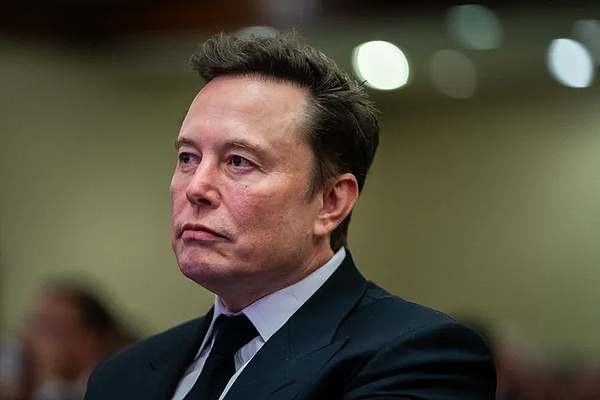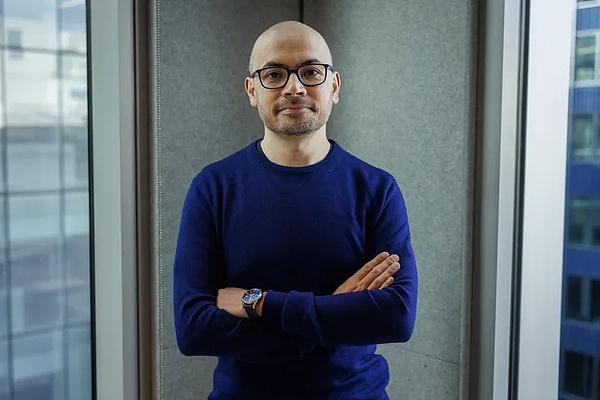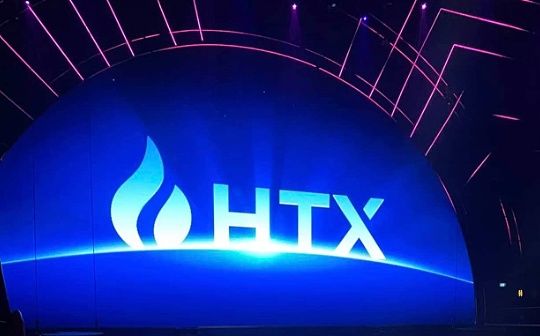
Source: Tencent Technology
According to TheVerge, in 2016, OpenAI began negotiations with Microsoft on a cooperation agreement. The short-lived startup hopes to obtain key computing resources to build a chatbot ChatGPT.However, as the CEO of OpenAI, Sam Altman first wants to win the support of Elon Musk, the biggest “financing owner”.
According to the latest email, Ultraman sent Musk a message in September 2016: “We only need $10 million to get $60 million worth of computing resources, and we can also use MicrosoftAdvice on deploying technologies in the cloud. “Microsoft hopes that OpenAI can provide feedback and promote Microsoft’s artificial intelligence tools, such as Azure Batch.However, Musk expressed disgust with the idea, saying it made him “disgusted”.
Ultraman then made another proposal: “Microsoft is now willing to reach an agreement with us for $50 million and promises that ‘OpenAI will assess itself on the basis of the situation whether it has done its best’, both parties enjoy it at any time.The right to terminate the agreement. At the same time, the agreement does not contain any promotional content and there are no other conditions attached. In this way, we will not be like a bad marketing piece used by Microsoft. Can you continue to discuss this proposal?”
Musk responded: “If they don’t use this feature in the message they send, I don’t think it’s a problem. But if we can avoid people feeling like they are Microsoft’s ‘marketing bitch’, then the value of this agreementIt will be much more than $50 million.”
Last week, Musk made public the emails, along with other related emails, as part of his lawsuit against OpenAI and Microsoft.On the surface, Musk’s move was to prove that there is an anti-competitive law partnership between Microsoft and OpenAI.But more critically, the emails revealed details of the early cooperation between Ultraman and Musk and the subsequent power struggle.Musk invested $50 million to $100 million in the early days of OpenAI.
The emails also trace OpenAI’s gradual evolution from an open source nonprofit organization to Microsoft’s “de facto closed-source subsidiary”, during which the company also gave up its original intention of developing artificial intelligence for the welfare of all mankind.At the same time, they also witnessed the complete collapse of the cooperative relationship between Musk and Ultraman.
“Musk has tried to change his statement for the third time in just under a year, and this time his statement is more unfounded and exaggerated than before,” an OpenAI spokesman said in a statement.

Musk and Ultraman and others co-founded OpenAI because they worry that smart technology equivalent to human level will fall into the hands of tech giants like Google.However, they eventually discovered that OpenAI gradually evolved into the kind of tech giant they were worried about.After successfully seizing Musk’s coveted position as CEO of OpenAI, Ultraman decided to keep OpenAI’s cutting-edge artificial intelligence technology strictly confidential.He claimed that the technology was too dangerous to be released publicly.
The decision angered Musk, so he quit the OpenAI board and set up his own artificial intelligence startup xAI last year.Today, nearly a decade after the two co-founded OpenAI, Musk is taking the competition to court, launching a fierce battle over “an unstoppable future of computing.”
In an email to Musk in 2015, Ultraman expressed his thoughts on the future development of artificial intelligence.He wrote: “I’ve been thinking about whether it’s possible to stop people from developing AI. But if the development of this technology is unavoidable anyway, it seems that it would be a good choice to take the lead in this work by companies other than Google.”
1.Cluttered between two forces, lacking both talent and capital
From the very beginning, OpenAI was caught between two conflicting forces: on the one hand its lofty ideal mission to benefit mankind, and on the other hand it was the fierce competitive reality with tech giants.Musk and Ultraman agree that regardless of the automaton, ensuring that attracts top talent and raising a lot of cash is crucial.This early compromise laid the groundwork for Musk’s later criticism of OpenAI for only pursuing profits rather than sticking to its original intentions.
In 2015, OpenAI was also known as YC AI, and is a laboratory affiliated with YCR, a nonprofit research division of the startup incubator Y Combinator.Ultraman, who was president of Y Combinator at the time, actively attracted researchers and funds using his extensive network and resources.Musk urges Ultraman and CTO Greg Brockman (current president) to seek more than $100 million in financing, reminding them that any lower than the well-funded tech giants such as Google and FacebookFunds in this amount will appear insignificant.
“I think we should say we will start with a $1 billion commitment to funding. It’s true that I’ll pay any amount of funds that nobody else has provided,” Musk wrote in an email that year.
Yet despite Musk’s support and tens of millions of dollars in funding, the emerging organization still faces a challenge that most startups will face in the early stages: a fierce battle for top talent.While OpenAI may be the hottest employer in Silicon Valley today, many top AI researchers were not interested in it a decade ago (or before ChatGPT was launched).
To strive for the best AI researchers, Ultraman and his team designed a unique compensation plan: provide $175,000 in base salary, award YC the title of “part-time partner”, and 0.25 per batch of startups in YC% equity.Today, OpenAI artificial intelligence researchers have an annual salary of nearly $1 million.In an email to Musk, Ultraman called the program the “Artificial Intelligence Manhattan Project” and believed that he could attract the top 50 of the top researchers to join through some kind of nonprofit organization.Build this project in a form that will benefit the world of technology, while allowing those who work in this work to receive a generous reward like a startup.
Ultraman’s original intention was to build a founding team of 7 to 10 elite members and was determined to attract the most outstanding talents in the industry at all costs.However, they face fierce competition from Google’s artificial intelligence lab DeepMind.
In a December 2015 letter to Musk, Ultraman expressed concern: “DeepMind intends to make a generous offer to every member of OpenAI tomorrow, trying to kill us. You object to adding 100,000 to 200,000 to everyone a year.Is the dollar’s salary? While I think they’re all passionate about this mission, the raise will be a positive signal that we’ll take care of them properly. “He added: “It sounds like DeepMind is preparing to go to war with us.”
Musk approved the salary increase proposal.By February 2016, OpenAI’s founding team received $275,000 in annual salary and equity in YC, while other employees enjoyed $175,000 in annual salary and $125,000 in performance bonuses, or equivalent YC or SpaceX stocks.But OpenAI co-founder Ilya Sutskever (formerly chief scientist) is a special case.It is reported that Sutskevi’s income exceeded US$1.9 million in 2016. He once revealed to the media that he “rejected a offer that was equivalent to several times the salary given by OpenAI.”
Musk responded: “We need to do our best to attract top talent. We need to continue to invest more. If we need to re-examine the compensation of existing employees in the future, it’s OK. Either we get the best talent in the world, or we’llWill be defeated by DeepMind. As long as it can produce outstanding talents, I am willing to support it.” He also warned that DeepMind’s victory brought him “great mental pressure” and “they are obviously making significant progress, considering thereThey should make such progress in the talent level.”
2.Both Musk and Ultraman want to be CEOs.Motives have been questioned by other joint creations
Over time, there was a significant disagreement between Musk and Ultraman.
In August 2017, just as OpenAI finalized the specific details of the first round of financing of US$200 million to US$1 billion, some internal contradictions began to emerge.Shivon Zilis, a former member of the board of directors of OpenAI and also the operational director of Neuralink, a brain-computer interface company under Musk, wrote to Musk, mentioning Brockman and Sutskevi about the newly established OpenAIConcerned about the allocation of equity and control of for-profit institutions, and expressed concern about whether Musk could invest enough time while serving as CEO.Musk responded: “This is so annoying. Please encourage them to start a business. I’ve had enough.”
The following month, Sutskvie and Brockman jointly sent an email to Musk and Ultraman to further elaborate on their concerns.They pointed out that if Musk is CEO, he may have “unilateral absolute control” on the development of general artificial intelligence (AGI).At the same time, they questioned Ultraman’s motivation, asking why he valued the “CEO title” so much, and asking him “Is developing AGI really the main motivation? What does this have to do with your political goals? Your thoughtsWhat changes have happened during this period?”
Although the email did not specify the specific meaning of the word “politics”, earlier that year, Ultraman did begin to speak out actively during the political campaign in California, USA.Sutskwe and Brockman said they were blinded during the early fundraising process and failed to raise these concerns in a timely manner.

DeepMind CEO Deemis Hassabis
They continued: “OpenAI’s goal is to create a bright future and avoid letting AGI (artificial universal intelligence) take control. We are also worried that DeepMind’s DeepMind’s DeepMind’s may create aAGI hegemony. So if you plan to be a ruler, or create a system that will make you a ruler, that is definitely not a good idea, especially given the efforts we are doing.”
However, Musk is not buying it.He responded: “I will not fund OpenAI unless you make a promise. It makes me feel like a fool, I’m basically giving you free funds to create a startup. The discussion ends.” Ultraman replied that he was still “passionate about the non-profit structure”, and this statement ultimately made Sutskwei and Brockman choose to make concessions.
The situation has become more complicated after this standoff.Ziris relayed her conversation with Ultraman to Musk, in which Ultraman expressed that his trust in Brockman and Sutskevi had dropped drastically, feeling that their message was inconsistent and sometimes even seemed naive.Therefore, Ultraman decided to take 10 days off to handle the incident, and he needed to reassess the level of trust in the two co-founders and whether he would still be willing to continue working with them.
However, just five months after Sutskville and Brockman expressed concerns about the power struggle, the situation once again reached a critical turning point.During a fierce quarrel, Musk was convinced that OpenAI was far behind Google and proposed that he control the company himself.This is exactly the situation Brockman and Sutskevi warned before that Musk might try to unilaterally control the direction of the company.
Musk said in 2018 that he was pessimistic about the competitive prospects of OpenAI with DeepMind and Google.Musk left the board in February 2018 and cut off funding, but he still advised the company as an advisor as a consultant.
Musk’s departure poses a serious threat to OpenAI’s non-profit model.Since he had invested $100 million before, his departure made OpenAI urgently need to find new sources of funding.In 2019, to reduce reliance on Musk and fund training data centers, OpenAI designed a unique structure: a for-profit company controlled by a nonprofit organization.The structure attracted the attention of investors such as LinkedIn co-founder Reid Hoffman and venture capital Vinod Khosla, who participated in the first round of financing and promised to offer close$1 billion in funding, but the initial funding was only $130 million.
During this period, Musk sent an email to Ultraman, suggesting he was involved in the company’s structural adjustment and asked Ultraman to make it clear that he had no financial interest in OpenAI’s for-profit sector.Ultraman simply responded, “No problem.” However, the email later became part of the lawsuit.
3.OpenAI’s power struggle is not due to personal grudges
OpenAI has a huge influence in the artificial intelligence industry, and its internal battle for control has always attracted much attention.Despite the fierce battle between Musk and Ultraman, Ultraman ultimately won, giving him almost complete control of OpenAI.
Musk’s legal value of the allegations against OpenAI and Microsoft may be controversial, and his lawsuits mostly focus on accusing Ultraman of hypocrisy, which often have difficulty receiving substantial punishment in court.However, the lawsuit provides Musk with a rare opportunity to reveal some details about the origins of OpenAI and his own role.These evidences reveal that Ultraman had already grasped a considerable degree of power at the beginning of the company, which may not be completely consistent with the original intentions of other co-founders.
In addition, the lawsuit also demonstrates the complex relationships and power struggles within OpenAI.Ultraman showed his willingness to confront for-profit competitors from the outset, highlighting his strong position in the company.At the same time, this incident also shows that Musk’s desire for power has not decreased. He may hope to destroy Ultraman’s reputation and consolidate his position as a legal administrator of AGI through this lawsuit.
However, we also need to recognize that the narrative presented in this lawsuit may not be complete.Many important conversations and decisions may occur privately and are not disclosed or included in litigation materials.Therefore, we cannot fully understand all the details and background of this palace battle.
In general, the battle for control of OpenAI is not only a contest of personal grievances, but also concerns the future development direction and strategic positioning of the field of artificial intelligence.The result of this struggle will have a profound impact on OpenAI, and will also have certain inspiration and reference effects on the entire industry.








